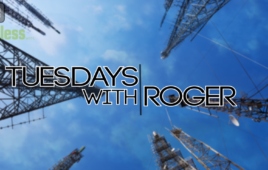In the wake of President Obama’s recent budget proposal that calls for the implementation of a new “spectrum license user fee,” one analyst is warning that such a levy on the industry would disproportionately impact small carriers.
Recon Analytics’ Roger Entner on Tuesday called the proposed fees a “tax hike” and said the extra costs would make it harder for up and coming carriers to compete with their larger tier-1 rivals.
“Such a tax hike will make it more difficult for new entrants to a very competitive market as it raises their cost to provide service,” Entner said. “If you’re a startup, how much can you pass through? For most new entrants, the way to make an entrance is to beat the big guys. So it will hurt the little guys.”
Entner said the effects of the spectrum fees would be felt by rural carriers in particular, who have fewer customers but lots of spectrum. The result, he said, would be a large cost spread over a small base.
Eventually, though, Entner said the costs would likely trickle down to come out of the pockets of consumers and businesses using increasingly ubiquitous wireless services.
“It’s basically a tax hike – even if you call it spectrum license fee – on a service that is essential for consumers and businesses alike,” Entner said. “Ultimately all these taxes are paid by the American people. For an industry with about $190 billion in service revenues, a $4.8 billion tax hike represents an additional burden of 2.5 percent for wireless customers.”
“We’re going to pay for it,” he continued. “They’re going to pass it through or it’s going to come out of the pocket of shareholders, which means the value of the stock goes down. Americans will pay for it one way or another. My money, though, is that it will get handed through to consumers.”
Shortly after the Administration’s budget release, CTIA also raised concerns that the proposed fees would have a negative impact on revenues from the upcoming spectrum auction. Sue Rudd, Director of Service Provider Analysis at Strategy Analytics, seconded that sentiment on Tuesday.
“If the Federal Government is layering user fees on top of the initial auction fees operators are likely to look at the life-cycle cost of both and adjust their auction bids accordingly,” Rudd said. “So in the long run the total government revenue from spectrum may not increase significantly.”
Prior to the new fee proposal, Bloomberg reported that auction revenues were already projected to fall well short of the $45 billion expected by the FCC, possibly amounting to just $33 million.
Filed Under: Telecommunications (spectrums)




